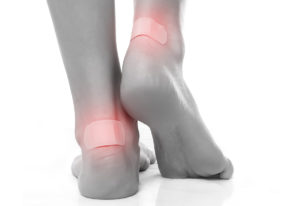Blisters Treatment
If blisters are a common occurrence on your feet and affect your daily activity, it’s time you visited The Foot and Ankle Clinic for help.
A blister is a small pocket of fluid within the upper layers of the skin. The fluid is commonly lymph, serum, plasma, blood or pus. Blisters are typically caused by forceful rubbing (friction), freezing, infection or burning. Any sport, activity, or work can lead to skin friction, shearing or abrasion and lead to blisters and are an acute response to high levels of stress on the skin.
If you are wearing ill-fitting or tight footwear, this could lead to the trauma of blisters, making walking and daily activity painful and uncomfortable.
How we help with blisters
The best course of action when treating a blister is to visit a podiatrist to examine and correctly diagnose your symptoms as a blister. Before visiting your local The Foot and Ankle Clinic it is important to keep the area clean and not pierce the blister to avoid infection.
If the blister is small (less than 5mm in diameter) with no signs of infection it can be covered with a protective padding to relieve pressure to prevent further abrasion. If shoes are the cause of your blistering, changing footwear to a better fitting pair will avoid recurrence.
At The Foot and Ankle Clinic, we believe healthy feet lead to a happy, active lifestyle. We aim to treat, but more importantly prevent foot related injuries in our patients. When patients present with blistering, an assessment of the blister will determine whether it needs to be drained and the Podiatrist will provide appropriate dressing to avoid infection.
A biomechanical assessment will determine whether the way you walk and run could be causing blistering due to biomechanical abnormalities. If abnormalities are causing blistering, your Podiatrist can prescribe custom orthotics to prevent further blistering and future issues. If you have a condition which affects your feet, such as diabetes it is important to seek professional assistance from a Podiatrist when blistering occurs to avoid other serious complications.
You can trust The Foot and Ankle Clinic’s team of highly-qualified podiatrists to always provide that extra level of care and attention when delivering the best in foot care solutions for you and your family. Our team will deliver you with world-class podiatry services, and work with you to tailor a solution that is individualised to your needs.
The Foot and Ankle Clinic’s top tips for blister prevention
Wear appropriate footwear, hosery or socks.
Protect the skin – apply a thin layer of petroleum jelly or apply adhesive tape to problem areas
Keep skin dry – Moist skin is more susceptible to blistering than dry skin
New shoes must be worn in before using for extended periods of exercise
Seek a diagnosis from a podiatrist if blisters occur regularly


